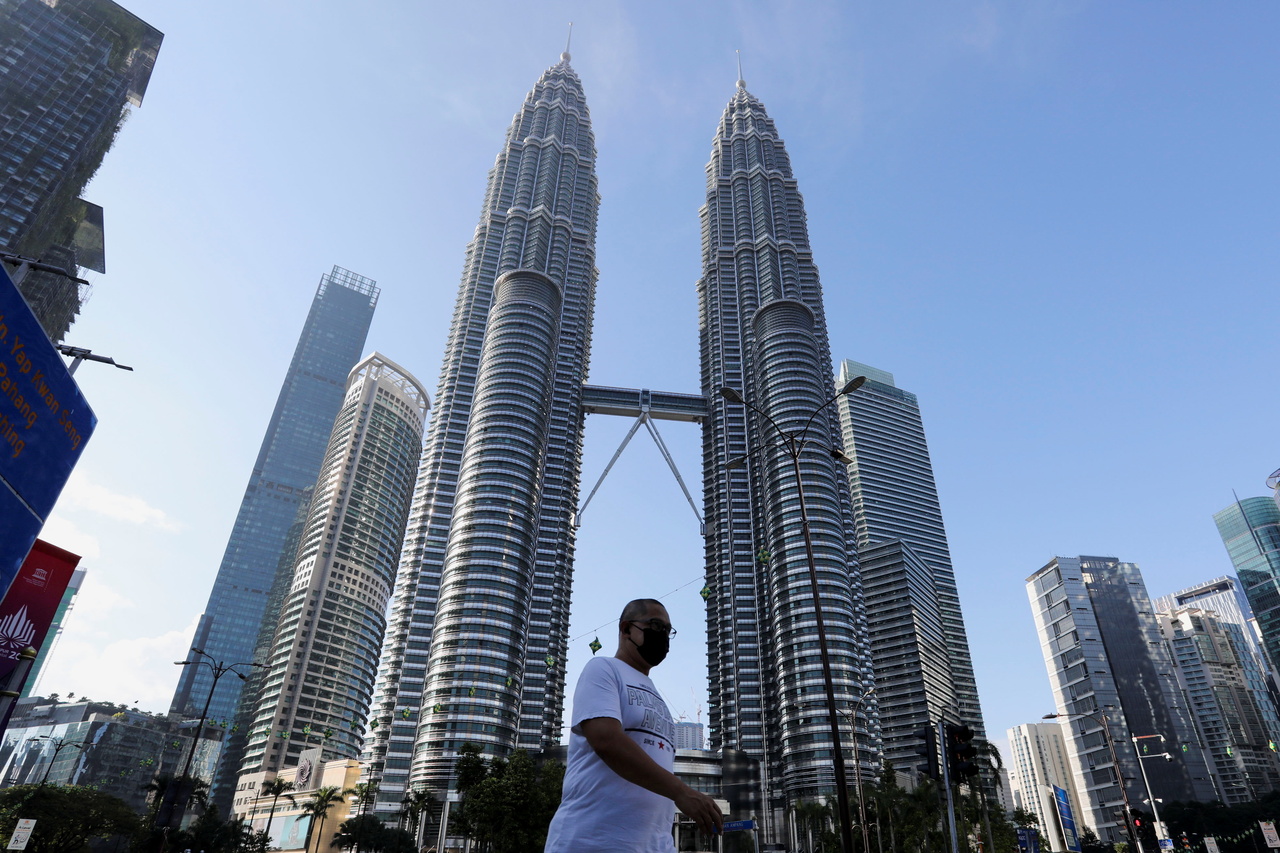More Malaysians unhappy with handling of Covid-19, PM Muhyiddin's ratings dip: Poll
Sign up now: Get insights on the biggest stories in Malaysia

A recent survey found that 61 per cent of respondents were dissatisfied with how the government is managing the Covid-19 outbreak.
PHOTO: REUTERS
KUALA LUMPUR - When the Covid-19 pandemic broke out in Malaysia in February last year, Ms Wan Nor Aisyah Karim believed that the country was in good hands.
Fast forward 18 months, the 25-year-old kindergarten teacher said she is no longer sure if the country is heading in the right direction.
"I had confidence in the government because it managed to bring down the cases to almost zero even after a change in administration. But now, I'm not so sure because things went from bad to worse," she said, referring to the collapse of the Pakatan Harapan administration in February last year, and it being replaced by Prime Minister Muhyiddin Yassin's Perikatan Nasional (PN).
When PN took over in March last year, new Covid-19 infections were hovering below 30 cases daily. That figure began climbing steadily from the beginning of this year, and has accelerated since May, driven by the more transmissible Delta strain.
On Friday (Aug 6), new daily infections spiked at 20,889 cases, the highest since the pandemic began.
"I believe the constant political bickering, coupled with poor policymaking, has led us here and it's the rakyat (people) who are suffering," she added.
Based on a recent survey done by independent pollster Merdeka Centre, Ms Aisyah is voicing most people's dissatisfaction with how the government has managed the country and the pandemic.
In its survey ahead of the parliamentary sitting almost two weeks ago, the centre found that nearly 64 per cent of respondents believe that the country is headed in the wrong direction.
This is almost double the number from June last year, when the number of daily coronavirus cases was close to zero and only 32 per cent of respondents thought the country was headed the wrong way.
These survey results were revealed by the centre's executive director, Mr Ibrahim Suffian, in an interview with news channel Astro Awani on Thursday.
He said that 61 per cent of respondents were dissatisfied with how the government is managing the Covid-19 outbreak, compared against the 93 per cent who were satisfied with how the pandemic was handled last year, during its initial stages.
"We noticed that in the last three months or so, the sentiment has spread not just within the urban centres, but also in other parts of the country, even in Sabah and Sarawak. Particularly the voters in rural areas, bumiputeras (Malays and aboriginal communities) are now also reflecting a more negative sentiment towards the government and how it's handling the pandemic and the political situation," he said.
He also noted that approval ratings for Tan Sri Muhyiddin have fallen to 50 per cent, compared with 67 per cent in April.
Mr Muhyiddin is currently facing challenges to his right to govern, after Umno, the largest party in his ruling coalition PN, withdrew its support and deprived the coalition of a parliamentary majority.
Meanwhile, Malaysia's youth leaders have called for a platform for them to share their ideas and contribute to policymaking regarding the pandemic.
In the Youth and Politics in Malaysia webinar on Friday organised by the Merdeka Centre, panellists said politicians should be open to fresh ideas from the young.
Dr Thanussha Francis Xavier, co-founder of youth-centered political party Muda, said: "The government should've got the input of all stakeholders when drafting the Covid-19 policy, this includes the youth. There is no engagement and initiative to understand the real situation on the ground. Veteran politicians are so used to belittling our voices when fresh ideas are needed."
However, Mr Nor Akmal Jazlan, who watched the webinar, was of the view that assigning blame on the government was not so clear-cut, considering Covid-19 was a global pandemic.
"How sure are we that the government has failed us when there's a global rise in cases due to the Delta variant? This is not the time to point fingers, it's best for us to continue taking care of ourselves and play our role," the information technology officer told The Straits Times.


